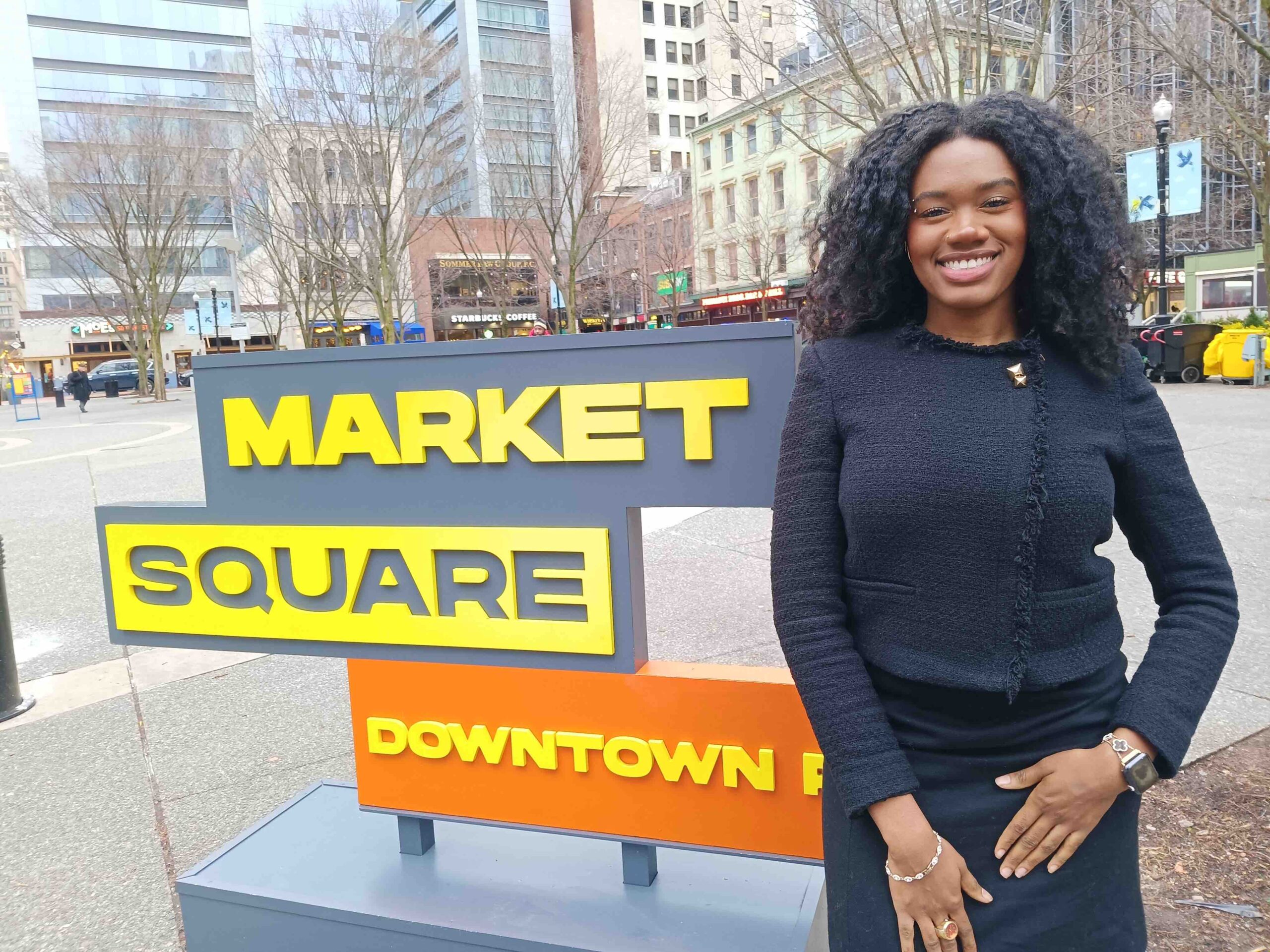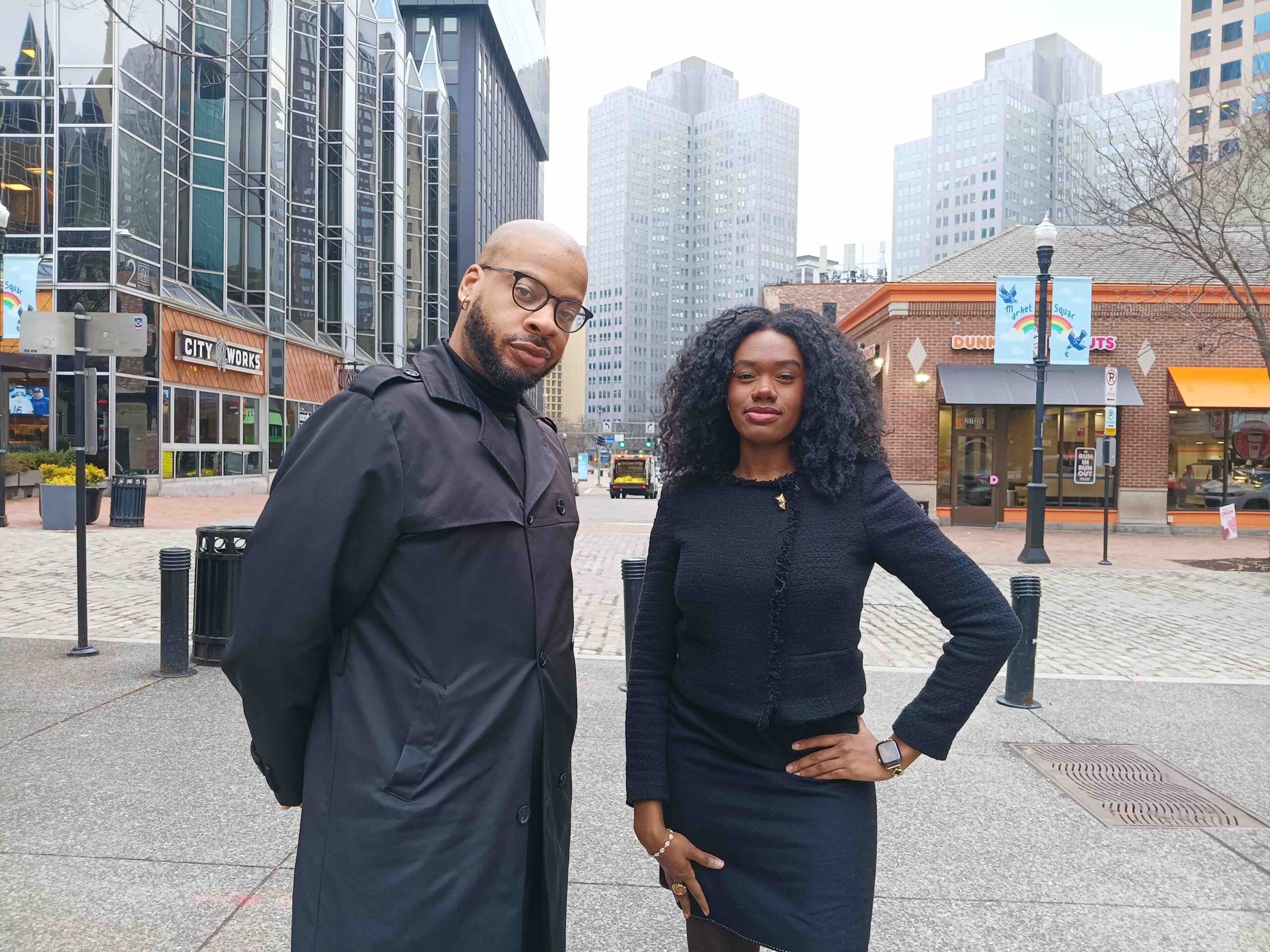PITTSBURGH’S YOUNG BLACK PROFESSIONALS INCLUDE RIAN-LOUIS, 35, AND AJANI ZANAYA, 24.
Young Black professionals in Pittsburgh give the city mixed reviews, but apartmentlist.com ranks Pittsburgh at the bottom
by Naomi C. Ilochi
For New Pittsburgh Courier
In recent years, conversations have been brewing about the best U.S. cities for Black professionals. Black professionals, either as college graduates and/or those with an entrepreneurial spirit, are on the prowl for their “perfect fit” to build a life and community. Many immediately think of cities like Houston, Dallas, Washington, D.C., and Atlanta when Black professionals are brought into question.
Each February, Apartmentlist.com issues a ranking of the best cities in the U.S. for Black professionals. On Feb. 11, 2025, the website came out with its list for 2025, and, as in 2024, Washington, D.C. was ranked No. 1 out of 76 cities.
Pittsburgh was ranked 69th out of 76 cities in the 2024 list. But in the 2025 list, the New Pittsburgh Courier has learned that Pittsburgh dropped to 76th, the worst city for Black professionals. To be fair, Pittsburgh tied for the last spot with Albany, N.Y.

BRADLEY HILL
Prior to the 2025 ranking being released, Bradley Hill, 30, a Pittsburgh native, Edinboro University alum and program coordinator at The Greenwood Plan (Downtown Pittsburgh), told the Courier he strongly disagreed with Pittsburgh’s 69th ranking in 2024.
However, Hill said: “I think that while my career is flourishing, my social life isn’t. It’s a myriad of things, I’m unfortunately fat, Black, and queer and those things work against me. I feel like there is a social hierarchy—if you’re not thin or light—and that’s in almost all spaces. I just don’t see myself represented in any major way, by any major representative. I feel like in romance, in the arts, we just prioritize Whiteness or racially ambiguous, thin, what has always been. I think a lot of people think about inclusivity in work and their personal lives, and it’s just hard for me to flourish beyond the career space. I think that goes for most Black people; you’ll let us work for you, but we’re not the first you’ll choose to date or give money or make your dreams come true. I think I’m so marginalized and it does get overwhelming, and I know that’s not the case in other places throughout the country.”

AJANI ZANAYA, OF YORK, PA., WANTS PITTSBURGH TO HAVE A “STRATEGIC PLAN” ON HOW IT WILL INVEST IN ITS BLACK COMMUNITIES.
Apartmentlist.com, a website known for connecting people with apartments across the country, partnered with its Black Employee Resource Group for the list. The ERG, named “Black@A-List,” created metrics that spoke to the “lived experiences of members of the African Diaspora who graduated from college and are part of the workforce,” according to Apartmentlist.com. There were four categories that cities were judged on; Community & Representation, Economic Opportunity, Housing Opportunity, and Business Environment.
Before Apartmentlist.com started coming out with its “Best Cities for Black Professionals” listings, organizations have long tried to figure out how to make things better for Black professionals in Pittsburgh. As recently as December 2024, the “Black Pittsburgh Satisfaction and Retention Survey” was released via a partnership with the Black Political Empowerment Project’s Corporate Equity and Inclusion Roundtable and the University of Pittsburgh School of Social Work’s Center for Race and Social Problems. The goal was to have at least 1,000 people complete the online survey, to help Pitt and B-PEP better understand the exact improvements necessary to improve the quality of life for Black professionals in Pittsburgh.
Richard Jones, 26, is a photographer, Pittsburgh native and Morehouse College alum currently living on the South Side. He told the Courier he understands why Pittsburgh is ranked so low.
“I’m just waiting for another opportunity to leave the city,” Jones said. “Through my personal experience, not only having my degree and the namesake of your school, you would think that I would have many opportunities, with certain interviews I’ve had, that it would’ve gone further. But, even with my degree and with my work experience, there are so many jobs that I’ve interviewed and almost been recruited for specifically in the City of Pittsburgh that haven’t led anywhere. Even the positions I have had, seeing the space and who has been given the position, many times, I didn’t believe they were more qualified than I am. They were selected on the grounds of racial discrimination.”
Pittsburgh’s Black population continues to decline. According to the U.S. Census, Pittsburgh’s Black population decreased by 13.4 percent between 2010 and 2020, leaving the city’s Black population at just under 70,000. Pittsburgh is about 23 percent Black these days.
Data analysis by PublicSource.org found that 17 percent of the Black population in Pittsburgh had at least a four-year college degree in 2016. Current numbers were unavailable, though the 17 percent from 2016 more than likely has not veered too much in either direction. That number of “17 percent” is generally seen as a “low” number of Black professionals in a city, compared with places like Charlotte, Atlanta, etc.
After Washington, D.C., the cities that were ranked the next highest for Black professionals for 2025 according to Apartmentlist.com were Atlanta, San Antonio, Houston and Dallas. Apartmentlist.com reported that D.C. has a 51 percent homeownership rate for African Americans, 22 percent of its teachers are Black, and 30 percent of its doctors are Black. In San Antonio, just nine percent of the population is Black, but 44 percent of the Blacks in the city are homeowners.
Baltimore was ranked as the eighth best city for Black professionals in 2025, according to Apartmentlist.com. Break it down further, and Baltimore was ranked 16th best for “Community & Representation,” 12th best for “Economic Opportunity,” 22nd best for “Housing Opportunity” and 25th best for “Business Environment.”
Meanwhile, Pittsburgh was ranked 70th best for “Community & Representation,” 68th best for “Economic Opportunity,” 73rd best for “Economic Opportunity,” and 70th best for “Business Environment.”
Looking across the entire 76 city list, while cities like Columbus (41), Charlotte (10) and Raleigh (21) were understandably ranked higher than Pittsburgh, even cities like Dayton, Ohio (60), Knoxville, Tenn. (39), Jackson, Miss. (42) and Akron, Ohio (71), were ranked higher than Pittsburgh.
Pittsburgh’s Black population may have experienced a drastic decline, but its professional and entrepreneurial pool still exists. It’s evident in the Courier’s “Men of Excellence,” “Women of Excellence” and “Fab 40 under 40” events that are held in Pittsburgh, celebrating Black professionals in the region.
But some of the younger Black professionals are beginning to wonder if being educated and accomplished is enough to participate in a well-balanced life in Pittsburgh.
“Pittsburgh needs a strategic plan on how they will keep, restore and invest into Black communities and experiences,” said Ajani Zanaya, 24, a York, Pa., native and University of Pittsburgh graduate. She currently lives on the North Side. “They can do that by raising wages and allowing Black businesses and people to own their businesses and properties.” Also, “increasing the economic ownership in the city for Black people, and making space for our cultural contributions, not just digesting them, but allowing us to cultivate and retain those spaces for us, by us. We deserve to own our culture, and our spaces, and we deserve to be considered beyond our immediate return on investment because we experience ‘pet to threat,’ where they want us to execute specific deliverables, but once it surpasses their need for control, they put that ceiling, start gatekeeping, and denying us opportunities. I want to see them develop a course of action that will go beyond a performative initiative. I want sustainability for our communities. I want sustainable communities to be nourished for Black people in this city.”
Obviously, there is much to be done for Pittsburgh to be seen as a hub for Black professionals and entrepreneurs, from the housing crisis to the racial disparities in education and employment. While most Black professionals in Pittsburgh would like to see drastic changes in the city, Rian-Louis, 35, who works as an outreach coordinator for Amachi Pittsburgh and is also a podcaster, sees hope for Pittsburgh.
“I live here,” Rian-Louis expressed, “because there is a different type of culture, creative, artistic community that keeps me here.”

